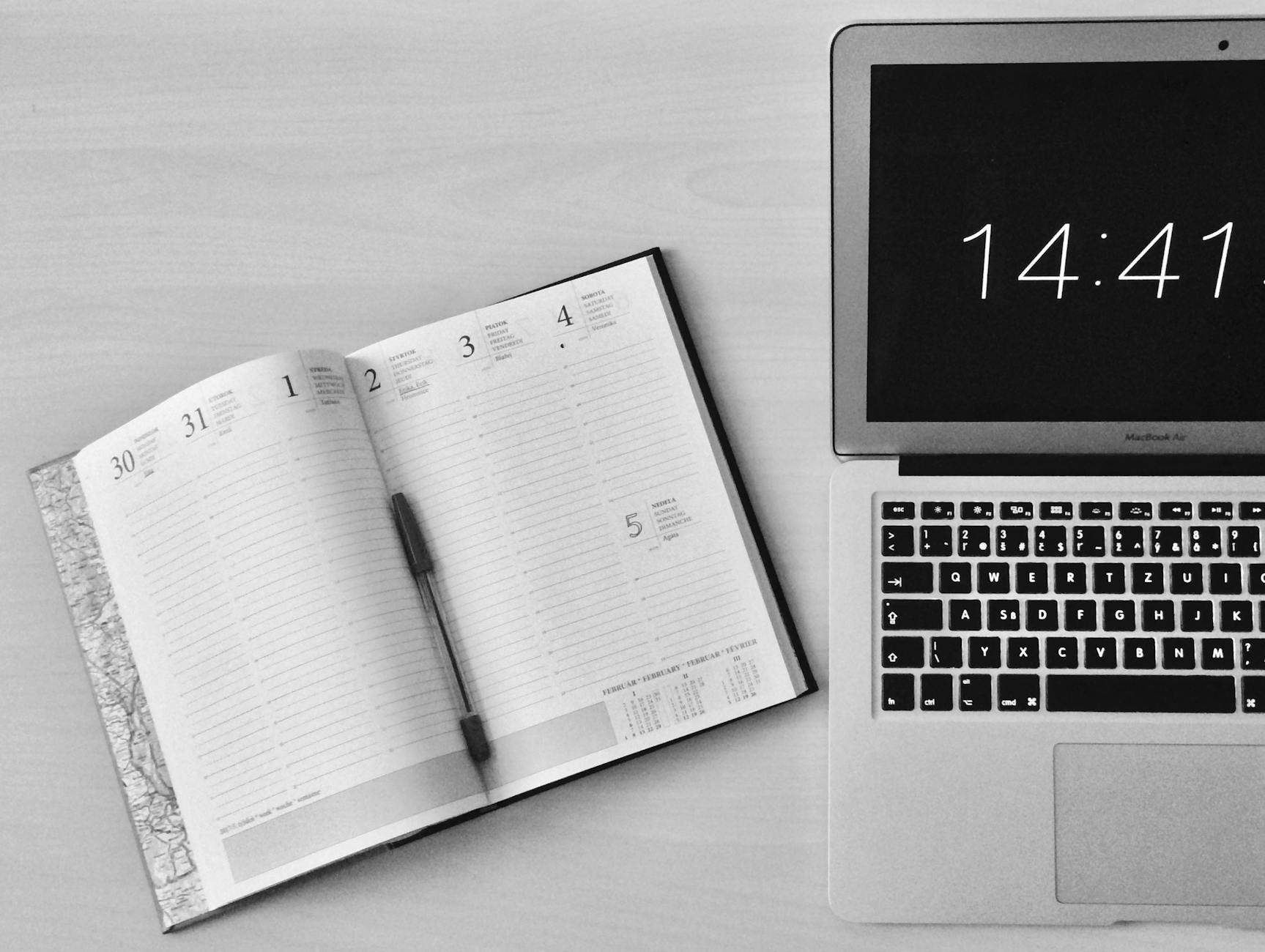Screens flicker. Notifications hum. Most days, our minds run on auto-pilot, pulled by every new alert and endless scroll. This constant pull drains our focus and saps our spark.
Choosing a digital detox weekend invites fresh air into your life—real space to breathe, reconnect, and feel awake again. The noise softens. Suddenly, there’s room to recharge. For anyone hungry for true personal growth, stepping away from screens helps restore your energy and clarity. What feels like a break turns into a boost for your mind and spirit.
The Hidden Cost of Constant Connection
Between the restless flicker of screens and the flood of pings, our brains rarely get a break. This always-on world looks normal from the outside, but the true toll hides below the surface. Every alert, every endless scroll pulls focus away from what matters, slowly draining energy and stretching attention thin. These hidden costs add up, often without us even noticing.
Mental Overload and Information Fatigue
Each day, phones hum and screens flash, delivering a landslide of updates. It’s a barrage on the senses—one that wears you down, bit by bit.
The constant barrage of notifications makes your mind jump from message to message. You rarely finish a thought before another alert pulls you away. Imagine your mind as a desktop with too many tabs open. After a while, things start to lag.
As the noise grows, your brain has to juggle more than it’s built for. Information whirrs past at dizzying speed, creating a steady hum of stress. Background anxiety becomes the soundtrack of your day. Simple tasks start to feel heavy, like moving through thick fog.
- Short attention span: It’s harder to concentrate, and mistakes happen more easily.
- Chronic stress: Always being on edge can trigger headaches or keep you awake at night.
- Mental exhaustion: By the end of the day, your mind feels raw and stretched thin.
Screen overload doesn’t just fragment your focus. It chips away at your sense of calm, leaving you tense and scattered. According to research from Harvard Medical School, too much screen time can dull the brain and make real-life moments feel flat or empty. To better understand these effects, you can read more on the impact of screen exposure in “Screen Time and the Brain”.
Emotional Drains from Social Media
Social media may keep you connected, but it quietly drains emotional reserves. Each swipe and scroll brings a new wave of comparisons—someone’s highlight reel against your real, unfiltered life.
The endless comparisons chip at self-confidence. Photos of perfect trips and flawless smiles create the illusion that everyone else has it all together. Before long, self-talk sours, leaving you feeling unsatisfied in your own story.
- Quick mood swings: Ups and downs arrive every time you compare your life to others.
- Drained happiness: Wins feel smaller or forgotten after scrolling through other people’s posts.
- Tired heart: Emotional energy slips away, leaving you numb or irritable.
The pressure to measure up never stops. Over time, you start to feel invisible in the crowd, needing more likes or comments just to feel noticed. Stanford experts caution that this cycle can lead to fatigue and even harm long-term memory and mood. If you want a deeper look into these effects, explore the insights from “What Excessive Screen Time Does to the Adult Brain”.
As your energy slips away, digital life can leave you feeling empty—proof that real rest comes from putting the phone down and turning your attention back to yourself.
What Happens During a Digital Detox Weekend
A digital detox weekend is a breath of fresh air for your mind and spirit. As screens go dark, time wakes up and stretches out in front of you. Small things come into focus—nature sounds, laughter, the satisfying snap of a book’s spine. This slow pace isn’t just about shutting off devices; it’s about rediscovering the world as it is, not as it appears on a screen.
Rediscovering the Rhythm of Nature
Step outside and the rush of dopamine from notifications is replaced by real-life sensations. The wind brushes past your skin. Leaves crunch beneath your shoes. The songs of birds fill the gaps where ringtones used to echo. This is what it means to feel grounded—your pulse slows down, your breath deepens.
If you spend your weekend unplugged outdoors, you might notice:
- The gentle sway of grass in the breeze
- Clouds drifting overhead, changing shape as you watch
- The scent of earth after rain or pine needles crushing underfoot
Instead of scrolling, you find comfort in letting your eyes wander across wide open spaces. According to “Reconnect with Nature: Screen-Free Outdoor Activities”, engaging with the outdoors—even simple walks or cloud-watching—refreshes your energy and boosts your mood.
Deepening Real-World Connections
When phones and tablets are put away, conversations with family and friends grow deeper. You laugh at old stories around the table, listen without glancing at a buzzing screen, and share long silences that feel comfortable instead of awkward.
Picture this: A board game instead of a group chat, or a backyard picnic where everyone pitches in to make the salad and grill lunch. Stories are passed around, not memes. The focus shifts to presence, where eye contact means more and shared smiles linger longer.
- Playing cards late into the night, swapping jokes instead of GIFs
- Fixing a meal together, each person with their hands busy and their mind free
- Long walks where you can hear the crunch of gravel and each other’s footsteps
If you’re curious about how others have grown closer through unplugging, you’ll find a heartfelt account in the story “Embracing Digital Detox: My Weekend Getaway Experience”.
Simple Joys and Quiet Reflection
A digital detox gives you the rare gift of boredom—of letting your mind wander instead of following endless links and videos. You might find yourself staring out a window, letting your thoughts drift, or lying on your back in the grass with nothing you “have” to do.
Free from constant input, your mind finds room to rest. Extraordinary things happen in these quiet spaces:
- You remember a childhood dream or let your imagination run wild
- Journaling becomes a way to check in with yourself, not just record the day
- You catch up on sleep, take time to stretch, or simply enjoy breathing in the calm
The practice of silence and stillness isn’t wasted time—it’s how you recharge your inner batteries. The comfort of daydreaming and quiet reflection brings new clarity when you return to your regular routine. Research in “Ways to use nature to support your mental health” shows that this kind of mindfulness in nature can ease tension and spark personal insight.
A screen-free pause helps you find energy you forgot you had—and reminds you that often, the best moments are the simplest ones.
 Photo by Miriam Alonso
Photo by Miriam Alonso
Recharging the Mind and Body
A digital detox weekend feels like a deep exhale after holding your breath for too long. It’s about giving both mind and body the space to reset. The absence of screens doesn’t just bring surface-level calm—it supports your health in ways that ripple out for days after. What begins as a simple break from devices transforms into better sleep, sharper focus, and an upswing in mood. This kind of reset renews your mental energy, helping you return to daily life with more spark, patience, and joy.
Better Sleep and Rested Energy
Blue light from screens can rob you of much-needed rest. Scientists have found that even two hours of screen time before bed can block melatonin, the hormone that signals your body it’s time to wind down. The result? Tossing, turning, and a surge of restless energy when you need rest most. Taking a digital break for just a weekend can quickly repair your sleep cycle.
When you step away from your devices, your mind settles, and your body can follow its natural cues:
- Quicker sleep onset: You drift off faster, without the mental buzz of notifications.
- Deeper, more restful sleep: Nights feel more restorative, leaving you sharp in the morning.
- More energy during the day: Waking up feels lighter, with fewer groggy, “I need coffee now” mornings.
One study found a direct link between reduced screen habits and better quality sleep—less scrolling means a stronger, natural melatonin rhythm. If you want to learn more about this science, check out the summary from “Screens and Your Sleep: The Impact of Nighttime Use”.
Sharpened Focus and Productivity
Constant notifications train your brain to jump from thought to thought, never lingering on one long enough to settle in. This scattershot attention makes it tough to finish tasks or even remember where you left off. Unplugging—even for just a few hours—acts like clearing out mental clutter. Think of it as closing all your browser tabs and finally finding room to think.
Here’s what happens when you give your brain a tech break:
- Thoughts become less jumbled.
- It’s easier to block distractions.
- You can zero in on tasks and finish them with less effort.
Taking a pause from screens helps restore your brain’s ability to focus, solve problems, and get things done without feeling burnt out. For those curious about the science behind mental downtime, here’s a helpful explanation on “Why Downtime Is Essential for Brain Health”.
Want even more strategies for improving your attention? Find simple, actionable tips in the post on how to increase focus and concentration for personal growth.
Brighter Moods and Less Stress
Digital breaks don’t just recharge your body—they lift your spirits too. Social media and non-stop news cycles keep anxiety close at hand. After a weekend unplugged, you’ll likely notice a lighter heart and a quieter mind.
Some real-world changes people report after digital detox weekends include:
- Feeling calmer and less irritable
- Laughing more with friends or family
- Worrying less about online drama and more about enjoying simple moments
Research supports these shifts. Intentional time away from screens drops stress and improves overall mood, making room for genuine happiness. You can read firsthand about these shifts in “The Power of Digital Detox”, which details how unplugging reduces stress and helps you reclaim your emotional balance.
If you need more help managing stress or want to go deeper into practices that support a steady mood, see the guide on practical ways to reduce stress and anxiety.
Giving yourself permission to unplug isn’t just a treat—it’s a science-backed way to refuel both your mind and your whole body.
Making a Digital Detox Weekend Work for You
Pressing pause on screens sounds easy, but putting it into practice is where the real power lies. A digital detox weekend creates space for your energy to return—but it takes intention. Here’s how you can set yourself up for a smooth break and actually enjoy it, even when you start missing your feeds or pings.
Planning for Success: Setting Boundaries
Before you switch off, let people know what you’re doing. Being upfront helps everyone understand you’re not ignoring them—you’re caring for yourself. Clear boundaries avoid misunderstandings and protect your quiet time.
Here are some simple ways to set those boundaries:
- Tell friends and family: Give them a heads-up that you’ll be unreachable. A quick text or call a day or two before your detox works well.
- Communicate with work: Let coworkers know you’re stepping away, and set an out-of-office email reply. Share when you’ll be back (and stick to it).
- Post on your accounts: If you often share updates, post a short message saying you’re unplugging for the weekend.
By sharing your plans, you free yourself from worry or guilt about missed messages. Start thinking about what makes you tick—trust your judgment about who needs to know and how much to say. For more inspiration on building self-awareness and personal growth, check out these thought-provoking Self-Reflection Questions for Growth.
Choosing Activities that Recharge
The heart of a digital detox is what you do instead of scrolling. Replace screen time with activities that fill your well and spark joy.
Try these practical suggestions to keep your weekend light and refreshing:
- Read a book: Curl up with a novel, biography, or even an old favorite. Let your mind wander through new pages instead of social feeds.
- Get outside: Take a hike, garden, or just stroll through your local park. Nature recharges you in ways no device can.
- Cook something new: Try out a new recipe or bake something from scratch. The hands-on process calms your thoughts and offers real satisfaction.
- Make art: Sketch, paint, or try creative journaling. Getting messy with supplies brings a playful energy to your weekend.
- Practice mindful movement: Gentle yoga, stretching, or slow walks help your mind and body reconnect.
Let your choices be about curiosity and simple joy, not perfection. If you need more ideas for daily habits that boost energy and mood, see these Small Habits That Transform Your Life.
 Photo by Michaela
Photo by Michaela
Managing Discomfort and Temptation
It’s normal to feel restless or anxious when you put down your phone. The urge to check in is strong—the habits you’ve built around screens are hard to break at first.
Use these ideas to work through the discomfort and make your detox last:
- Out of sight, out of mind: Store devices in a drawer, another room, or even a locked box.
- Replace, don’t just remove: Swap scrolling with something engaging. Have a novel or a journal nearby so your hands stay busy.
- Notice the urge: When you want to reach for your device, pause. Take a breath, stretch, or step outside for a few minutes.
- Remind yourself why: Write down your reason for unplugging on a sticky note. Put it where you’ll see it—sometimes a small nudge is all you need.
Most people feel the urge fade after a few hours; your brain will stop expecting a buzz or ring. The stillness may even start to feel comforting. Use the time to pay attention to how you really feel, without a screen wedged between you and your thoughts. If you’re exploring more ways to grow through discomfort, reflect on your experiences or journal what you notice throughout the weekend.
Building new habits around digital breaks can feel awkward at first, but practice makes it more natural. Your mind can find peace—and your energy can return—when you give yourself the space.
Conclusion
Stepping away from screens for a weekend can do more than offer a pause—it can bring back a sense of calm, spark, and genuine connection. By choosing a digital detox, you give your mind the rest it longs for and your spirit the freedom to refuel. Clear thoughts and steady energy replace the noise and distraction that slow you down.
This simple act can renew your sense of purpose and bring small joys into sharper focus. Make digital detox weekends part of your personal growth journey. For more strategies to build resilience and keep learning, explore these Growth Mindset Activities for Resilience.
Thank you for taking the time to read and reflect. If you try a digital detox, share your experience or revisit the quiet whenever you need a reset. Your energy and clarity are waiting—one unplugged weekend at a time.












